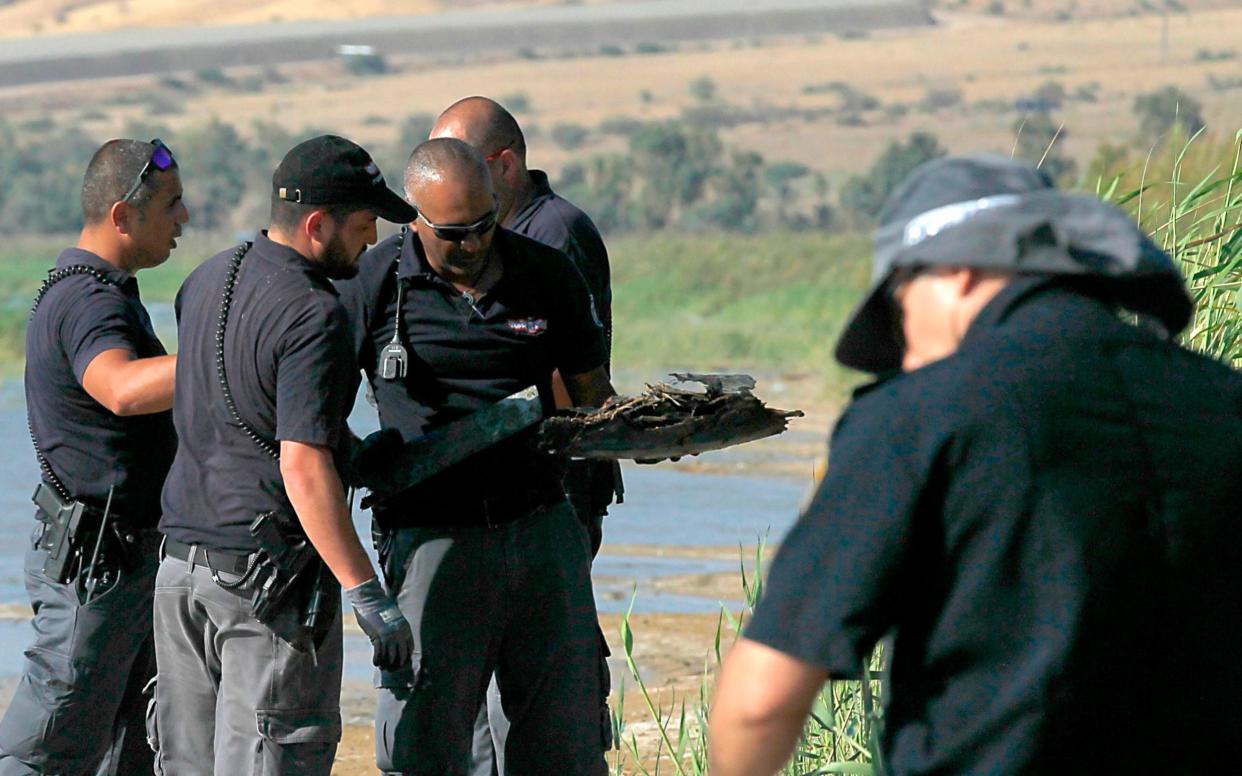Israel fires missiles into Syrian Golan Heights as tensions rise amid 'grand bargain' to reduce Iran's influence

Israel fired missiles into Syria on Thursday in response to a drone incursion in the Golan Heights, raising tensions on the shared border as leaders Donald Trump and Vladimir Putin were set to meet to discuss its fate.
Speculation over a potential grand bargain between the US and Russia that would limit Iran’s influence in Syria in return for an American withdrawal has been mounting ahead of a summit on Monday.
Both Israel and the US are pushing for Russia to use its sway over Bashar al-Assad, the Syrian president, to push Iranian troops and its allies Hizbollah from Syria.
But with Syrian forces clearing up the last rebel pockets in the south of the country, the US has little leverage to wield in negotiations.
It is thought that American presence may be used as a bargaining chip.
The US could offer to close its base at al-Tanf on the Jordanian border, where many of its estimated 2,000 troops in the country are stationed.
Golan Heights - locator map
Mr Trump has repeatedly spoken of his desire to extricate US forces from the intractable conflict - a move which would effectively leave Mr Putin as kingmaker in Syria.
Mr Putin met on Wednesday with Benjamin Netanyahu, Israel’s prime minister, who pleaded with the Russian leader to help “stabilise the situation” on the frontier.
Mr Netanyahu expressed his increasing concern about the presence of Iranian-backed troops near the Israeli-occupied Golan Heights.
Iran along with Lebanese militia Hizbollah, whose thousands of fighters have helped prop up the Assad regime, have been building up an arsenal of weapons that Israel fears could be used against it.
Israeli forces attacked Syrian military positions near the frontier Thursday morning, in a reminder of the volatile situation.
The Israeli military said in a statement that it hit three targets with Patriot missiles in retaliation for an incursion on Wednesday of a drone which was shot down over northern Israel.
Hours after his meeting with the Israeli premier, Mr Putin met with Ali Akbar Velayati, the top adviser to Iran’s supreme leader Ayatollah Ali Khamenei.
Details of the meeting were not made public, but Mr Velayati defiantly told reporters in Moscow afterwards that "Iran and Russia will continue to cooperate in Syria.”
John Bolton, Mr Trump’s national security adviser, said last weekend that Monday’s meeting - the first official one-on-one summit between Mr Putin and Mr Trump - offered the possibility of a “larger negotiation on helping to get Iranian forces out of Syria.”
Moscow has teamed up with Tehran to shore up Assad's government, but their interests do not always converge.
Russia also has maintained warm ties with Israel and demonstrated a readiness to take its security interests into account.
But there are major questions over whether Moscow could enforce any agreement over Iran’s actions in Syria.
What happens next in Syria
Mr Putin and Mr Netanyahu had reportedly reached an agreement for Russia to hold back Iranian-backed groups from the border before the Syrian regime began its offensive against rebels there last month.
However, Hizbollah militants were later discovered to be fighting alongside Assad’s troops disguised in the army’s uniform.
“I think it’s a gross overstatement to suggest that Putin can order the Iranian militias out of Syria. He doesn’t have that kind of leverage over Iran,” cautioned Michael McFaul, a former US ambassador to Moscow.
He said the Russian leader’s strategy might be to agree to something vague, allowing both sides to hail the summit as a victory, but then fail to follow through.
“[It] is a perfect play in that sense because it’s aspirational, it’s murky, it would take years to accomplish, and yet they could declare it as some tangible outcome,” he said.

